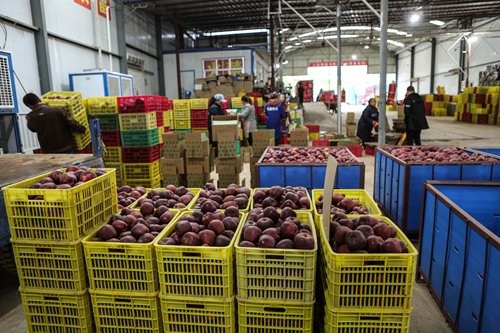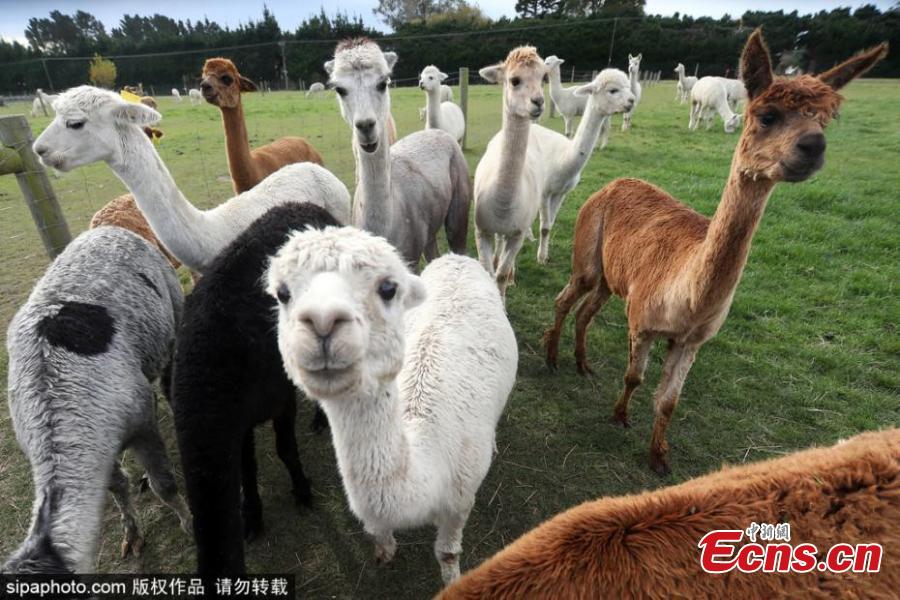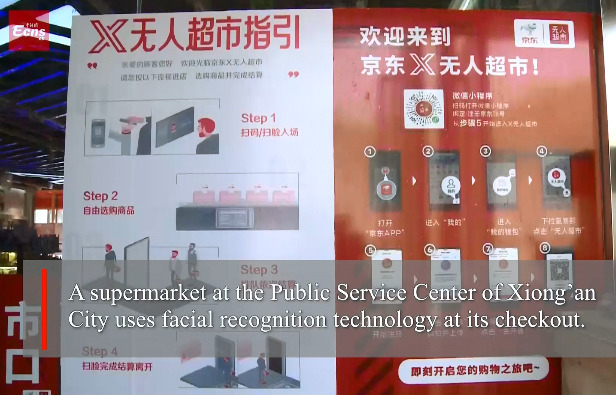
Farmers from Li county are busy preparing apples for the upcoming nationwide online shopping event next month. (Photo: Chen Qingqing/GT)
Rural start-ups rely on online platforms to help poor families
Northwest China's Gansu Province is one of the least developed areas in China. Longnan, located in the southern part of the province, is a typical mountainous area that has been stuck in poverty due to its geographical isolation. Many remote villages there have little connection with the outside world and local residents have been struggling to make their ends meet. A Global Times reporter recently traveled to the area to gauge how China's national poverty alleviation campaign has changed their lives over the past five years. [Special coverage]
When 31-year-old An Wuzhen talked about the years she worked in Shanghai, she said living in a big city was tough and she does not regret returning to her home province.
An is now living in her rural hometown - Pingjiacun village in Longnan, one of the poorest areas in Northwest China's Gansu Province - and has also become the youngest village Party chief ever. "I think I made the right decision of returning and launching my own business," she said.
An, who used to be a worker handling paperwork in a plush Shanghai office building, is now the owner of a thriving online business which sells various agricultural products, including black "wood ear" (a type of Chinese mushroom) and Sichuan pepper, which are grown in isolated mountains and procured from local villagers by her.
An is also familiar with every step of hunting honey in the wild. She would spend hours a day collecting it in the mountains to help boost her business and the quality of life in her village.
But An is not the only Millennial in this area of Gansu that has changed their own destiny by giving up urban life in a first-tier city and returning back home to become an entrepreneur.
In fact, An is among the more than 18,000 young people who have returned to their remote hometowns from city life and created their own online businesses over the past few years.
Since 2013, the local authorities in Longnan have been encouraging rural e-commerce and entrepreneurship to fight poverty as well as continuously investing in projects that improve road, broadband network and logistics infrastructure, according to the local government.
Surrounded by mountains, villages in Longnan, which are archetypical of poverty-ridden Chinese regions, have little connection with the outside world, hindering the area's development due to a lack of funds, resources and infrastructure.
At the end of 2011, 1.3 million people in the Longnan area were living below the national poverty line, a figure almost equal to the total population of Estonia.
Although villagers are able to plant diversified agricultural products including apples, walnuts, olives and Sichuan pepper thanks to the region's unique climate, providing local food resources and business opportunities, a large proportion of the farm products have gone unknown or unreached for years due to the lack of sales channels. But that is now changing.
Rural e-commerce blossoms
In Longnan, e-commerce has been playing a major role in fighting poverty.
Like many other businesspeople in the region, An in 2014 launched an online store on Taobao, the online marketplace of Chinese tech giant Alibaba Group Holding, to help widen her customer base and alleviate poverty in the area.
She climbs mountains every day to set up beehives on cliffs. "An open, wild environment will make sure honey is natural, and of course taste good," she said. One hive can collect about 10 kilograms of honey, which can be sold at 1,000 yuan ($151.7).
In her village, there are still about 40 impoverished households, but over 20 of them have joined in on the honey hunt. "For those poor families, we give them hives for free, and the honey hunt can help increase their income," she added.
Her life now is quite different from her former job in Shanghai, but she said she is happy about working every day among swarms of bees.


















































